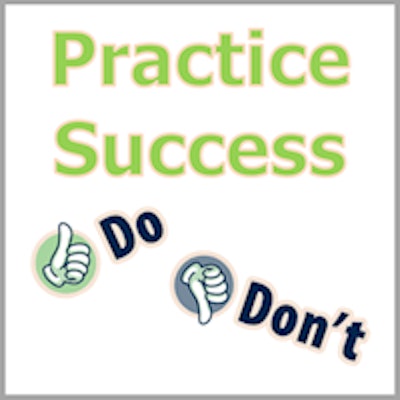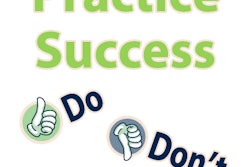
Even if your practice has perfect management systems today, they might be less than perfect tomorrow. Conditions change, and your systems should be changed accordingly. That's why it's advisable for practices to evaluate -- and, in most cases, totally redesign -- each practice system every three years. However, if a system is only a year old when a bottleneck crops up, it makes no sense to put up with the resulting frustration and inefficiency until the scheduled review. Instead, your team should address the problem without delay and innovate a solution.

When you hit a snag, raise a flag. It's easy to tell when a system develops a bottleneck. The staff members using the system begin to notice that certain steps are taking longer than before, or that they must improvise new steps, or that they're not getting the right results. When you run into this kind of situation, bring it up for discussion at a staff meeting. By their nature, bottlenecks progressively worsen, so it's wise to eliminate them as quickly as possible.

Don't just point out the problem, come up with a solution. The person who encounters an operational snag will usually have some good ideas about how to eliminate it. If you run into a problem, don't just talk about it (which can sound a lot like complaining). Take the lead in generating an innovative solution.
Roger P. Levin, DDS, is the chairman and CEO of practice management consulting firm Levin Group.
The comments and observations expressed herein do not necessarily reflect the opinions of DrBicuspid.com, nor should they be construed as an endorsement or admonishment of any particular idea, vendor, or organization.



















